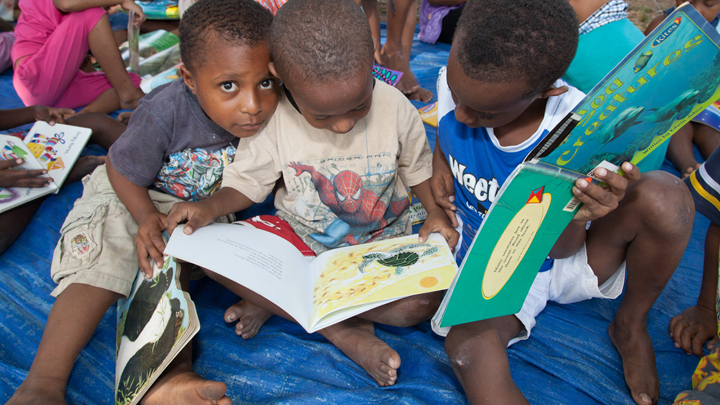
The Moving Minds Alliance (MMA) and the International Step by Step Association (ISSA) have called on governments, international organisations, NGOs, tech companies, and educational institutions to join forces in ensuring that AI-driven early childhood educational tools are developed and deployed with a focus on human connection, especially in humanitarian contexts.
In a statement by Moving Minds Allaince, Network Communications Manager, Lola Iyanda, to mark this year’s International Day of Education themed, “AI and Education: Preserving Human Agency in a World of Automation, the group stated that issue resonates deeply with its vision of a world where families caught up in crisis are able to rebuild resilience and foster the wellbeing and development of their young children.
It stated that research shows that quality early childhood interventions can mitigate the adverse effects of trauma and provide a foundation for lifelong learning and well-being.
“Early childhood is a pivotal period for cognitive, emotional, and social development. In humanitarian contexts, where children face compounded risks from displacement, conflict, and instability, the need for robust Early Childhood Education (ECE) programmes is even more pressing.
“Investing in holistic education in humanitarian settings not only addresses academic needs but also the mental, emotional, and physical well-being of children, providing comprehensive support. Schools offer a safe space, protecting children from exploitation and violence, while promoting long-term development by equipping them with essential skills and knowledge.
“As we navigate the rapid advancements in technology, it is crucial to ensure that these innovations serve to enhance, rather than replace, the essential human elements of learning and connection that children need to thrive.”
It noted that AI offers many benefits such as enhanced delivery of essential services like healthcare, education, and emergency relief. For example, AI-driven chatbots provide personalised learning experiences to children in crisis-affected areas.
“However, the use of AI in humanitarian settings raises significant concerns about data privacy and protection. Children’s data can be misused, putting them at risk of exploitation and abuse. It is crucial to implement these technologies responsibly to protect vulnerable children and ensure their rights are upheld.
“Beyond concerns for data privacy, there is significant worry regarding screen time, which should be very limited for young children. Research indicates that excessive screen time can negatively impact the cognitive development of children under six years old, affecting memory, attention, and critical thinking skills. Additionally, it can hinder the development of empathy and social skills.”
The groups maintained that human connection is crucial for early childhood development, especially in humanitarian settings, as it provides emotional and psychological support, helping children feel safe and secure.
“Positive interactions with caregivers and peers stimulate cognitive development, essential for language acquisition and problem-solving skills. Additionally, human connection promotes better physical health, as emotionally connected caregivers ensure proper nutrition and healthcare. Strong relationships also build resilience, enabling children to cope better with adversities, and teach essential social skills like empathy and communication.
The need for multistakeholder collaboration in designing and deploying ECE programmes is even more crucial now as the situation of children living in humanitarian crises have worsened significantly in 2024.”






